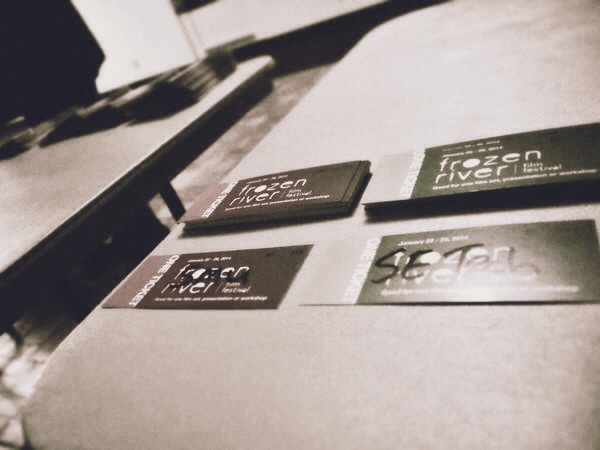For the past nine years in Winona, the end of January has been equated with the Frozen River Film Festival.
Locals would have to try pretty hard to not take part in at least some of this festival’s extensive programming, which expands from Winona State’s campus to downtown businesses to as far as Lanesboro for some pre-fest activities the week before.
If you’ve never attended, the layout is like this: it’s four-plus days of documentary films accompanied with various presentations and performances encompassing the four themes of environment, world culture, extreme sports and adventure. The content changes annually but the Festival’s mission has stayed the same since its first run in 2006; it strives to “engage, educate and activate our community to become involved in the world”.
With that in mind, I could break down and analyze the programming for 2014 (which would be reviewed favorably based on the events I personally attended), but maybe that’s redundant at this stage. Nearly a decade in, FRFF has endured through that awkward but exciting transitional period, found its niche and has since established itself in the community.
So, rather than summarize or even detail any 2014 specifics, I want to look at the big picture and consider the overall importance and impact this festival has on the region.
In my opinion, its biggest accomplishment is that it brings people together.
Maybe that’s assumed, or too starry-eyed to be seriously considered, but it seems to be understood by attendees at the Atrium in Winona State’s Science Learning Center that Saturday and Sunday. Those are the days you can roam the local vendor and civic engagement tables to buy handmade jewelry, soap and onions from you neighbor, pick-up a monthly newsletter from area organizations, tune in and out of the live music filling the space, look at bugs under a microscope and in the form of puppets with the Fish and Wildlife Service, greet friends you haven’t seen in a long time or make new ones after running into their kid as he raced for the lab room with the giant sandbox while you were rushing upstairs for a taco before the 1:00pm film set.
In the theater at the film set, maybe you share a moment with a stranger when you both titter nervously over the so-outrageous-it’s-humorous-until-it’s-just-sad message that a radical minister from the West is feeding Ugandans about the cruel intentions of gays in God Loves Uganda. Or maybe that moment is shared as you both sit stiff and breathless to choke down tears when Rocky tends Surya’s open sores in Blood Brother (this year’s winner of the First Place Juried Award and People’s Choice Award).
Returning to the Atrium, now blotchy-eyed but feeling enlightened, maybe you run into your new friend again (this time not physically) and remember why his face seemed so familiar the first time, because you saw him on Third Street on Fringe Friday at the Beginner Tai Chi class, or it could’ve been while perusing artwork at Some Sum Studio…
Perhaps you’ve heard the controversy this year surrounding the cancellation of the pro-fracking film FrackNation. Honestly, it’s surprising if you didn’t hear about director Phelim McAleer’s interview with Fox News because it seemed to be the heart of hearsay conversations throughout the weekend and it aired on America’s “most trusted name in news.” Then again, it’s surprising if you did hear the interview because it came from America’s “least trusted name in news.”
(*If you’re interested in the source and how this works you can read the PPP’s original article here.)
I’m commenting on the Festival with a biased opinion as well. I interned for FRFF for two years in college, then volunteered an additional year because I liked it so much. With my experience in helping build the Festival’s content, I debunk Mr. McAleer’s comment that “…the environmental commissaires in Minnesota have decided that the ordinary people don’t get to see an alternative point of view because they know best.” I argue neither the Festival Director nor the Content Committee are commissaires of any sort, and that the people of Winona are not ordinary.
Perhaps McAleer would’ve seen things differently had he attended the Charlie Parr Event, where Brian and I and presumably the director of Meeting Charlie Parr agreed there’s something spiritual in his music, or had he bumped hipbones with one of the improvisational performers during the SEED Art Installation before watching a 14 year-old girl embark on a solo trip around the world in Maidentrip.
Maybe I’m wrong in thinking The Frozen River Film Festival is one of those rare events that offers the many branches of one community the chance to unite and share in something positive and progressive.
Whether you are or are not of the same opinion I encourage readers to share their own perspectives on the Festival or its content below, because if Frozen River’s mission statement is to ever come to fruition, it will only be through our inclusion in the process.
